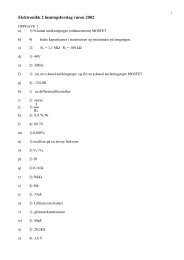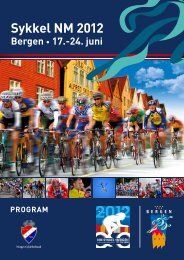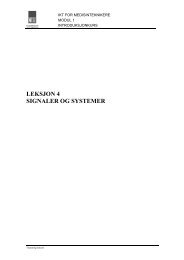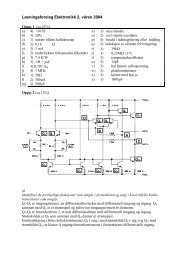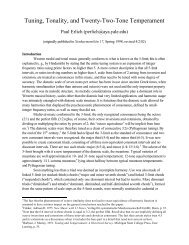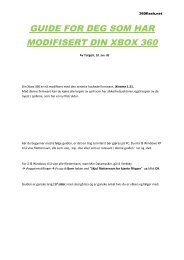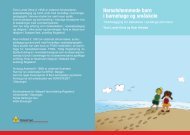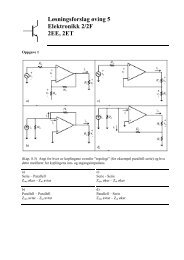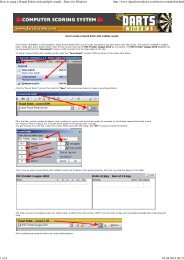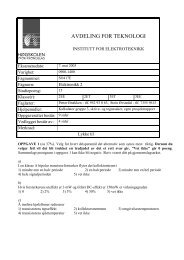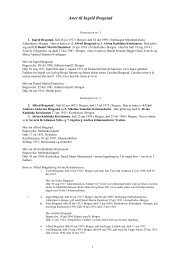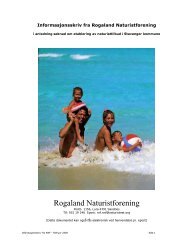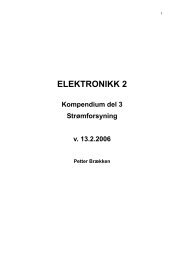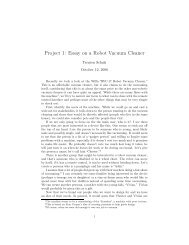The Online World resources handbook
The Online World resources handbook
The Online World resources handbook
Create successful ePaper yourself
Turn your PDF publications into a flip-book with our unique Google optimized e-Paper software.
Finding a needle in a bottle of hay http://home.eunet.no/~presno/bok/10.html<br />
Israel<br />
Middle East<br />
Russia<br />
Scandinavia<br />
South Africa<br />
United Kingdom<br />
For links to search services in other countries, try Search Engines <strong>World</strong>wide, Search<br />
Engine Colossus, and Country Specific Search Engines.<br />
<strong>The</strong> Financial Times Global Archive is another interesting offering. It has over 10<br />
million articles from 2000 publications. <strong>The</strong>ir news database is updated on a 24 hours / 7<br />
days basis from selected international publishers and agencies. Search the five year<br />
archive of the Financial Times Newspaper as well as archives of European, Asian and<br />
American business sources.<br />
In the comp.infosystems.search newsgroup, discussion is focused on web searching:<br />
"Discussion about the different aspects, ramifications and use of search engines and<br />
associated technology."<br />
Non English language searches<br />
<strong>The</strong>re are major structural differences between languages. An indexing system built for<br />
English text may therefore not be suitable for a text written in the language you're<br />
searching, and in particular if the other language uses special fonts. Using special<br />
purpose search engines may be the way to go in such cases. Some options:<br />
Arabic<br />
Chinese<br />
French (http://lokace.iplus.fr/ and http://www.ecila.fr)<br />
German (http://www.aladin.de/ and http://www.dino online.de/suche.html)<br />
Italian<br />
Japanese<br />
Spanish (Spanish language search engines).<br />
Another problem using the English language search systems is that you don't just have to<br />
understand English to get the most out of them, you'll have to understand English well.<br />
Searching Usenet<br />
After searching the Web, my next step is usually Google Groups, a large indexed<br />
database of archived Usenet news dating back to 1981. We're talking about over 700<br />
million messsages here (2001)! It is by far the most complete collection of Usenet<br />
articles ever assembled and a fascinating first hand historical account.<br />
You can use the service for research, or to locate interesting newsgroups worth your<br />
subscription.<br />
Google Groups' powerful filter lets you limit what records will be searched by a<br />
query. A search may be limited by date, author, newsgroup name (using wildcards, or<br />
range operators), wildcards (compan* matches companies, company, and much more.<br />
<strong>The</strong> order of the records in the hit list may be set to reflects how often the words<br />
you're searching for appear, as well as the importance you have given the posting date.<br />
This scoring will give you the records that best match your search at the top of the list.<br />
Once you have found an interesting message in a hitlist, you can retrieve the thread<br />
as it appears on the screen.<br />
InfoSeek lets you search many Internet newsgroups, news and business information<br />
from real time newswires, publications, broadcast programs, financial and government<br />
databases, <strong>World</strong> Wide Web pages, mailing list archives, and technical support<br />
information (including over a year of Computer Select database of the full text and<br />
abstracts of about 100 computer magazines).<br />
6 of 10 23.11.2009 15:46



